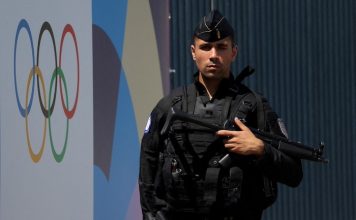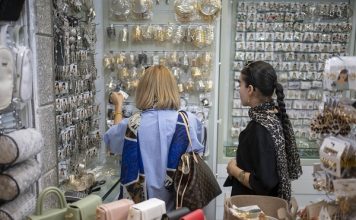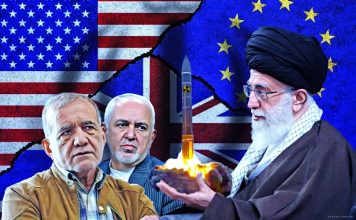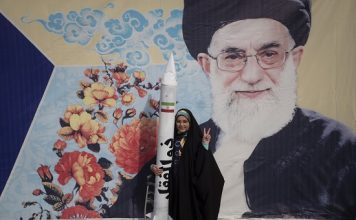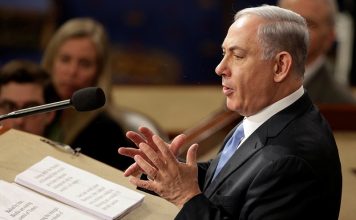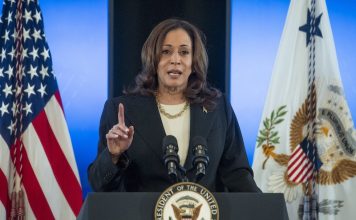An inquiry conducted by British lawmakers from several political parties and legal experts from the International Bar Association’s Human Rights Institute (IBAHRI) was launched in the UK Parliament on March 4, to investigate the situation of women and girls in Iran and Afghanistan.
Women and girls in Iran suffer state-sanctioned discrimination through laws which allow child marriage, forced hijab and the provision of higher status given to men. Instances of violence and repression against women and girls during the 2022 anti-government protests in the Islamic Republic have increased in recent years following the death of Mahsa Jina Amini in September 2022 while in police custody.
In Afghanistan, the de facto Taliban government which came to power in August 2021 has systematically reduced the rights of women and girls. Afghanistan is the only country in the world which prohibits girls from attending secondary schools. Women are banned from running beauty salons, working for the United Nations and other nonprofits, and are restricted from taking part in sports.
The event coincided with the launch of the inquiry’s first report, titled, “Shattering Women’s Rights, Shattering Lives,” produced by the inquiry’s parliamentary panel and written by the inquiry’s chair, Dr. Ewelina Ochab, a senior lawyer at IBAHRI.
[aesop_image img=”https://kayhanlife.com/wp-content/uploads/2024/03/Photo-3.jpg” panorama=”off” credit=”Dr. Ewelina Ochab” align=”center” lightbox=”on” captionsrc=”custom” captionposition=”left” revealfx=”off” overlay_revealfx=”off”]
The report described the erosion of women’s rights in Iran and Afghanistan, called for the the concept of gender apartheid to be recognized in law, and offered recommendations for upholding and preserving women’s rights around the world. Gender apartheid is defined by the United Nations as “the economic and social sexual discrimination against individuals because of their gender or sex.”
Explaining why established crimes against women such as gender persecution were not broad enough to incorporate the extent of the violations when it came to the treatment of women and girls in Iran and Afghanistan, panelist Baroness Helena Kennedy, who hosted the event said: “It is the way in which gender apartheid is buried in the interstices of the whole of the governing structures or institutions of a nation. And that’s what makes it different.”
“The denial of education, the denial of positions in public life, the denial of sitting as a judge, the denial to be a prosecutor and to be in the legal system, the denial to leave the home without having a guardian, or your father or somebody in your company, the denial of access to so many different things that we take for granted here in our own country,” Kennedy said. “Those denials are the things that are written into law and into the regulatory framework of countries and they have to be challenged in a different way.
[aesop_image img=”https://kayhanlife.com/wp-content/uploads/2024/03/Photo1.jpg” panorama=”off” credit=”Fawzia Koofi” align=”center” lightbox=”off” captionsrc=”custom” caption=”From left to right: Shideh, a volunteer for the Azadi Network, Baroness Helena Kennedy and Negin Shiraghaei, founder of the Azadi Network.” captionposition=”left” revealfx=”off” overlay_revealfx=”off”]
Speakers for the event, who also assisted with the inquiry’s report or gave evidence, included:
- Joanna Cherry, a Scottish politician and lawyer;
- Baroness Fiona Hodgson, a lawmaker in the UK House of Lords;
- Professor Karima Bennoune, Professor of Law at the University of Michigan;
- Fawzia Koofi, the first female second deputy speaker of parliament in Afghanistan, politician and women’s rights activist; and
- Dr. Ewelina Ochab.
Iranian women who contributed to the report but who were not present at the launch included: international human rights lawyer Gissou Nia, former BBC World Service lead presenter Rana Rahimpour, information security analyst Azam Jangravi and executive director of London-based non-governmental organization Justice for Iran, Shadi Sadr.
[aesop_image img=”https://kayhanlife.com/wp-content/uploads/2024/03/Photo-2.jpg” panorama=”off” credit=”Fawzia Koofi” align=”center” lightbox=”on” captionsrc=”custom” captionposition=”left” revealfx=”off” overlay_revealfx=”off”]
Sadr, whose evidence to the inquiry was submitted in February decided to turn her report into a research paper. The paper, which was shared with Kayhan Life and published on March 2, is titled, “Living as Second-Class Human Beings: Gender Apartheid in the Islamic Republic of Iran.”
“After the submission, I felt I owed the subject more than that,” Sadr told Kayhan Life. “I felt I had a duty to so many beautiful lives that were sacrificed for the ‘Woman, Life, Freedom’ revolution.”
Sadr’s 23-page paper described the ways in which the Iranian government used gender discrimination in policy and law to oppress women and girls leading to them becoming “the property of the state.”
The Iranian regime’s “laws and norms around mandatory hijab and gender segregation are crucial for the maintenance of the gender apartheid structure,” the paper said.
Speaking about the segregation of women and girls in Afghanistan, Baroness Hodgson said: “I have been watching and trying to help the Afghan women for many years, and I would like to salute them because even before 2021 they were such an amazingly brave group. It was a misogynistic country.”
“It was really hard for these women to come forward and take their part in public life and they did. As we all know it’s never easy to be a woman in politics anywhere, but in Afghanistan it can be lethal.”
The inquiry’s report makes several recommendations aimed at the UK government alongside recognizing gender apartheid as a crime in law, including:
- Amplifying the stories and experiences of women in Iran and Afghanistan;
- Engaging with UN bodies investigating violence against women;
- Prioritizing the situation of women and girls in Iran and Afghanistan in foreign policy; and
- Introducing UK visas for women fleeing Afghanistan.

